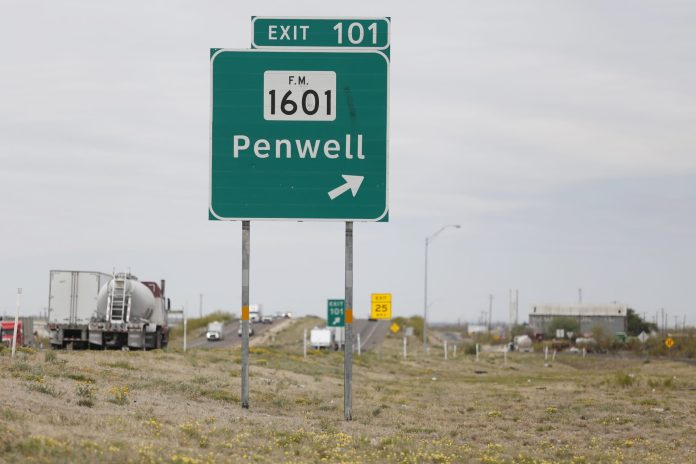
The chief operating officer of Nacero Inc. has told the Odessa Development Corp. board that his Houston-based company had postponed its plan to build a $7- to $10-billion airplane fuel manufacturing plant at the oilfield ghost town of Penwell 15 miles west of Odessa and would instead start making methanol on the Gulf Coast.
Nacero COO Hal Bouknight said his company would need at least five years to build the methanol plant, making fuel for ships from natural gas, and get it going and that methanol is too corrosive to be made here and piped south.
Methanol or wood alcohol is also used as an industrial solvent to help create inks, resins, adhesives and dyes and as a solvent in the manufacture of pharmaceutical ingredients and such products as cholesterol, streptomycin, vitamins and hormones.
Odessa Chamber of Commerce Director of Economic Development Tom Manskey and ODC board member David Boutin said Tuesday that Bouknight had reported that his board of directors wanted to proceed with a quicker revenue-making project before undertaking the big Penwell task, which would employ 330 people and require 3,500 for the construction.
Manskey said the ODC had made one payment of nearly $2 million to Nacero for the first year of a 10-year, $20-million financial aid plan because the company had satisfied all its requirements at that point; however, he said future payments have been suspended till the project is resumed and additional requirements are met.
“A lot to things can happen, but hopefully they will turn their attention back here and bring the project back,” Manskey said. “We want to keep the door open, remain their partner and get it out of the ground in probably six to eight years.”
Boutin said he was disappointed about the postponement, but that he was still hopeful the project will eventually happen.
“This is a worthwhile project and we would like to see it done as soon as possible,” Boutin said. “They still have the intent to do it somewhere down the road when the market conditions change in a favorable fashion.
“It’s a challenge to do a project that size, but they do have investors and their investors are sticking with them. According to what Hal told us, the project is not dead. It’s a nice project for the community and we would like to see it go forward.”
Bouknight said in January last year that Nacero had changed its plan from using natural gas to make 100,000 barrels per day of clean gasoline to using a billion cubic feet per day of natural gas to make airplane fuel.
He said Nacero had bought a section of land on 640 acres at Penwell and had options on three more sections.
Bouknight said his company had not entirely given up on its clean gasoline plan and might return to it at some point in the future and that it had developed the technology to manufacture that as well as low carbon jet fuel and aviation fuel.
He said the plan was to build six “trains,” or sets of equipment to produce the fuel, and to power the plant with renewable energy under the contract it signed last year with NextEra Energy Resources of Juno Beach, Fla., which has more than 20 wind and solar farms around the state.



